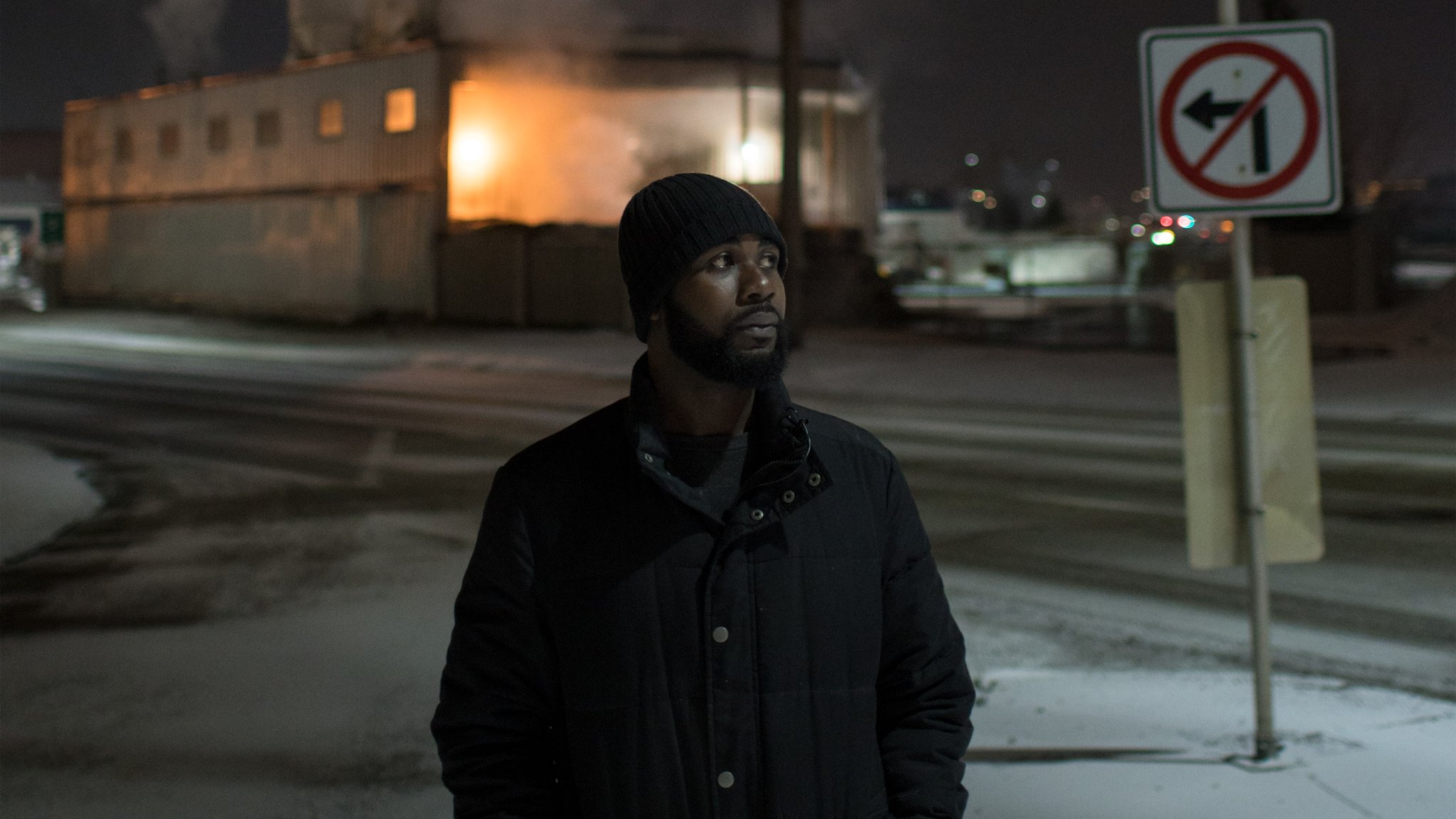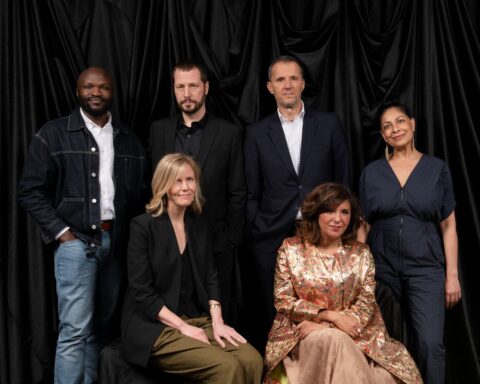Blackballed
(USA, 12× 8 min.)
Dir. Michael Jacobs
The ESPN and Netflix co-produced documentary series The Last Dance quenched the thirst many had for sports related content during the pandemic. While that brilliantly constructed series was a nostalgia heavy look at the Chicago Bulls, one of the most dominant teams in sports history, the Quibi series Blackballed focuses its lens on one of the most mismanaged, the Los Angeles Clippers. If The Last Dance was a series that reinforced our love of sports as entertainment, then Blackballed is a sobering reminder of the political side of sports.
As director Michael Jacobs notes in the documentary, whether we like to admit it or not, politics has always played a crucial role in sports. Individuals such as Muhammed Ali, Tommie Smith and John Carlos may be celebrated for using their platforms to break down barriers, but few consider the systems that built the walls in the first place. Primarily focusing on five turbulent days in 2014, Blackballed highlights the rocky road that the National Basketball Association (NBA) had to travel in order to combat racism. The issue hit home when the league was forced to address a leaked secret recording between Los Angeles Clippers owner Donald Sterling and his mistress V. Stiviano. The tape infamously featured Sterling berating Stiviano for associating in public with the African American NBA legend Magic Johnson.
Using Sterling’s question of “who makes the game,” the owners or the players, as a jumping off point, Jacobs’ documentary opens a greater conversation about the ways sports can both cultivate an unhealthy culture and provide the spark needed to stand up against it. Sterling’s anti-Black racism inadvertently ripped the band-aid off a long festering open wound, one that no longer allowed his views on race and his players to be swept under the rug.
What made Sterling’s words so damning was the fact that over 70% of the NBA’s players are Black while those in management positions are predominately white. Blackballed smoothly incorporates numerous examples of how this power imbalance reared its ugly head when David Stern oversaw the league as commissioner. During his run, Stern instituted many tough punishments on the players who dared to step out of line. Everything from how they dressed entering arenas for games to their actions on and off the court were closely scrutinized.
Blackballed astutely points out that while the players were frequently held accountable for their actions, the same could not be said for the wealthy owners like Sterling who treated their players like cattle. A real estate mogul known for exploiting and discriminating against Black and brown tenants, Sterling’s prejudice was well-documented prior to him purchasing the Clippers in the ’80s. However, his wealth shielded him from repercussions for his numerous questionable actions, including his tendency to parade his Black players around at parties like a slave owner flaunting the physical specimens that were his workers.
With the eyes of the world descending on the league during this period, the documentary brings viewers into the pressure cooker that the team found themselves roasting in. Already in the playoffs when the tape was released, the players were forced to balance their personal feelings and the weight of the situation.
Pulling together interviews with coach Doc Rivers, various former Clippers players including Chris Paul, J.J. Redick, DeAndre Jordan and Matt Barnes, as well as journalists and league officials, Blackballed effectively captures the complicated bind the players were in. As The Atlantic’s Jemele Hill states at one point “the unfair part of racism is that the people most victimized and oppressed by it also have to be burdened with solving it too.” With outside pressure to boycott games, and stars around the league, including LeBron James, speaking out against Sterling, it became clear that the Clippers’ players caught in the crossfire had to make a statement.
The NBA may have received a reputation for being a league that supports its players when it comes to activism, but Jacob’s documentary shows that this was not always the case. While the Michael Jordan era paved the way for major endorsement deals, most of the league’s superstars avoided taking a stand on social issues for fear of the impact on their careers. The Sterling incident changed this and taught the new generation of players the valuable lesson that being silent is a form of being complicit.
One of the important takeaways from Blackballed is that the Sterling tape, much like the recent George Floyd video, opened the eyes of the league, the players, and its fans to systemic racism. As New York Times Critic-at-Large Wesley Morris states in one section of the documentary, we often live with the “racism we can’t see.” However, Sterling peeled the curtain away and bared his racism for all to witness.
Originally premiering the same night of The Last Dance finale, and eight days before Floyd’s life was tragically taken, Blackballed has not received the fanfare it deserves. Part of this is due to the medium it chose to deliver its message. Since Quibi is designed to tell stories in digestible 6-10 minutes chunks, and is still in its infancy stage, the platform has not yet made a major dent in the already crowed streaming service market. Furthermore, the odd way Blackballed is carved up for viewing, leaving some “episodes” feeling a tad light, does the documentary a major disservice. It inadvertently reinforces how much more powerful the piece would have been had it been presented as one feature length documentary.
While the format may be less than desirable for those who enjoy their documentary series in longer sittings, Blackballed has plenty to offer regardless of whether or not you are a sports fan. Jacobs constructs an intricate and engaging portrait of race and power in the workplace. With the NBA currently navigating how to restart the season during a pandemic and facing pressure to not overshadow the current Black Lives Matter movement, Blackballed is a necessary reminder that sports, politics and activism are often intertwined.
Blackballed is currently available to stream on Quibi.












